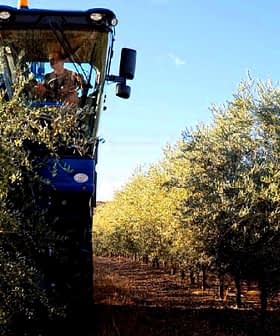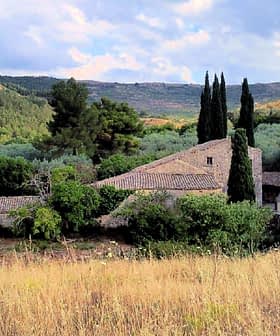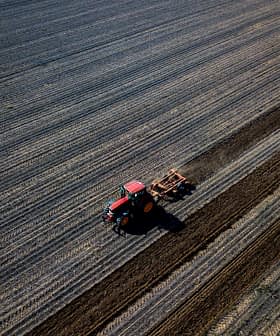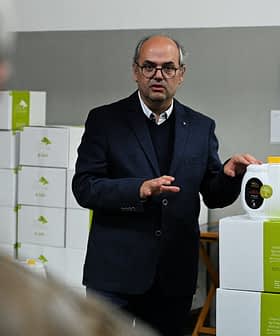Care, Commitment Lie Behind the Success of Southern Italian Producers at NYIOOC
Producers from Calabria, Campania and Puglia overcame drought and wildfires to once again place among the world’s highest-quality olive oils in New York.
 Marco Rizzi at the Allegretti mill
Marco Rizzi at the Allegretti mill Part of our continuing special coverage of the 2022 NYIOOC World Olive Oil Competition.
Southern Italian producers contributed significantly to the success of their motherland at the tenth NYIOOC World Olive Oil Competition.
Overall, Italy was the most awarded country in the world’s largest olive oil quality competition for the sixth consecutive year.
See Also:Best Olive Oils From ItalyProducers from Calabria, Campania and Puglia overcame the drought of the previous season to claim a substantial number of awards for their monovarietal and blended extra virgin olive oils, carefully crafted from local varieties.
Producers from the three regions attributed their success to passion, skill, tradition, the latest milling technology and a desire to farm sustainably.
Among the winners was Azienda Olivicola Petrazzuoli, in Ruviano, Campania, which earned a Gold Award for its Fontana Lupo brand, a clever fusion of Frantoio, Ortice, Caiazzana, and FS-17 olives.
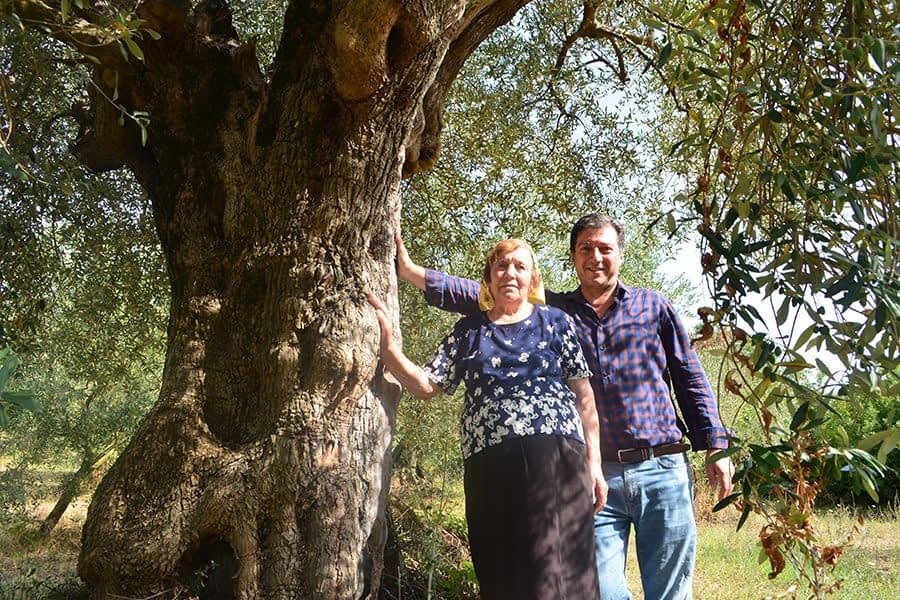
Giovanni Petrazzuoli and his mother Rosa at Fontana Lupo farm
“This recognition filled us with pride, especially since this is the third-consecutive Gold Award,” Giovanni Petrazzuoli told Olive Oil Times.
“Making an organic product, always maintaining the same high level [of quality] with all the weather issues we have faced these years is not easy,” he added. “It means that our production method has reached an excellent standard.”
The farm is named after an ancient tuff fountain used over the centuries by the local farmers to irrigate their crops – the water supply system still works, and, last year, it was vital in saving the harvest.
“Last year, due to drought, we had to resort to emergency irrigation,” Petrazzuoli said. “We have lost part of the fruit, but we were able to obtain very good oil.”
Sprawling over 10 hectares of hilly land, his groves include several varieties, some of which were recently planted.
“We have planted some more Ortice,” Petrazzuoli said. “Furthermore, we added a new plot of Ravece that will soon enter production. However, most of our trees are a century old, and, in particular, we take special care of some millenary Caiazzana trees.”
He explained that producing premium products means working harder in the olive grove, especially in the last few years.
“We must adapt to these ongoing climatic issues,” he said. “Our actions must become increasingly precise. You have to sweat a little if you want always to maintain the aforementioned quality standards.”
“Next weeks will be crucial due to the rising temperatures,” Petrazzuoli added. “It is time to pay even closer attention to our olive trees.”
Nestled in the hills of Girifalco, on a strip of land between the Tyrrhenian Sea and the Ionian Sea, Frisina Estate is where Anita Regenass produces Olio Frisina, which earned a Silver Award, with her family.
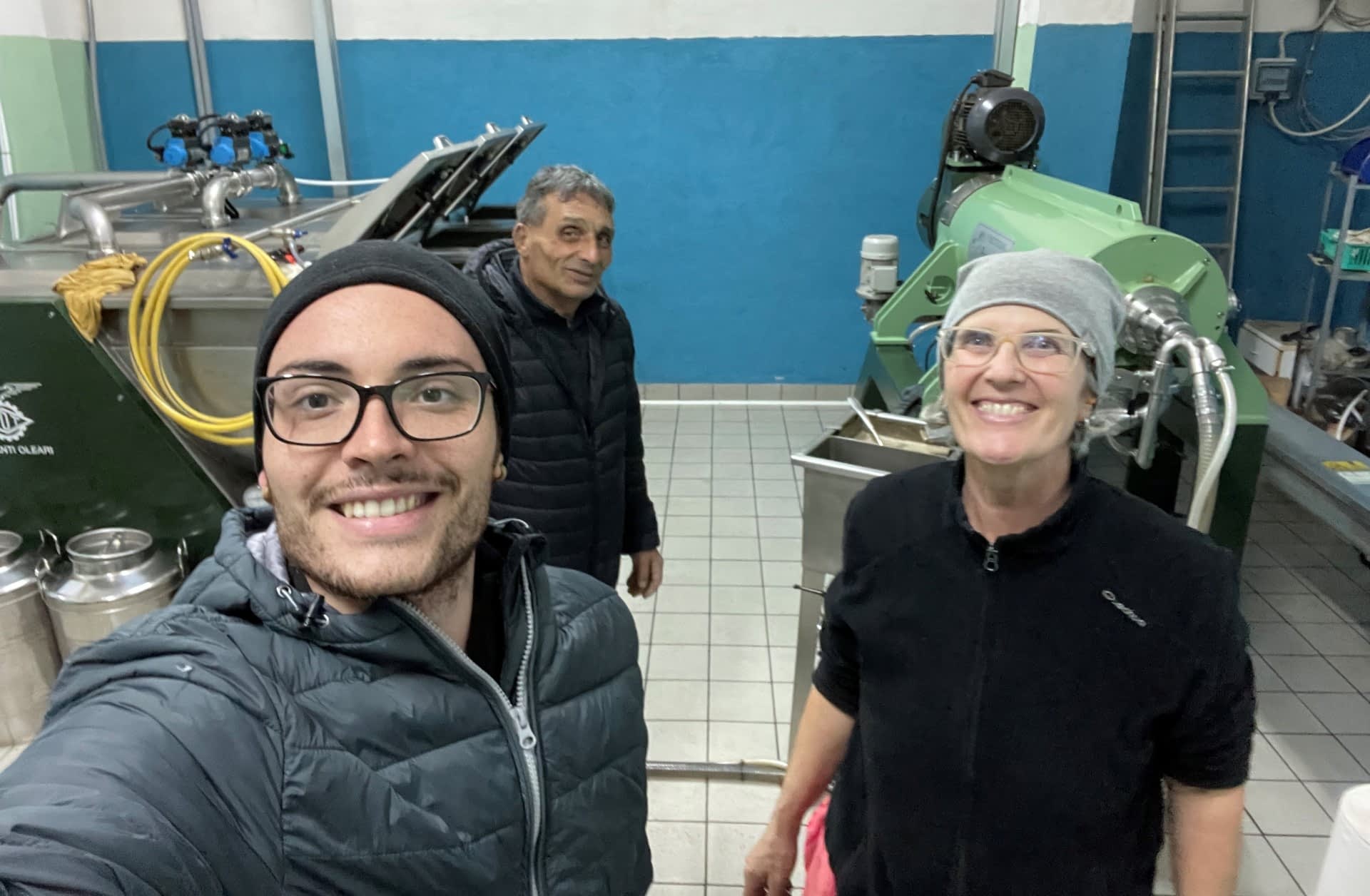
Frisina Regenass family at the mill
“We are very happy with this prestigious international recognition,” she said. “It further confirms the validity of the quality path we have taken.”
Located in Calabria, the second-largest olive oil-producing region in Italy after Puglia, their olive grove consists mainly of the local Carolea variety. The grove covers about 18 hectares of land between 450 and 500 meters of elevation.
“Last year, a summer with very high temperatures prompted us to use rescue irrigation,” Regenass.
However, she added that the heat wave prevented the development of the olive fruit fly, a significant pest for her Carolea olives.
“In recent years, the temperatures in October, the month of the harvest, started to become a problem for the storage of fruits,” she said. “This is another reason we crush the olives in a very short time, within a few hours from harvesting, in our company mill.”
Thanks to a two-phase technology of the latest generation, the family obtains a product with superior organoleptic properties while saving a significant amount of water.
“The management of our farm is organic,” Regenass said. “We constantly check our plants and take action only when necessary with targeted and sustainable interventions for them and the environment.”
Her focus will be on fruit development and coping with rising temperatures in the coming weeks.
“So far, we have had quite favorable weather,” Regenass said. “The phenological phases of flowering and fruit set duly took place, giving us hope for a successful outcome of the process. We will take extra care until the time of harvesting.”
As a result of the significant participation of farmers and producers from Puglia, who are responsible for more than half of total production in Italy, several awards were delivered to the country’s proverbial heel.
Among the triumphant producers from the region is Marco Rizzi, who earned two Gold Awards.
“This competition represents an opportunity for confrontation at an international scale,” the producer behind Tenute Allegretti told Olive Oil Times. “It allows us to monitor our quality level in this high-end market where consumers are increasingly becoming aware of the olive oil culture, recognizing the sensorial characteristics and the nutritional value of our products.”
Rizzi’s olive grove stretches over 100 hectares, hosting 12,000 Frantoio, Leccino, Cima di Melfi, Coratina and Picholine trees. In addition, several millenary Ogliarola Barese trees are in the organic grove in the Itria Valley.
“Last summer, we registered very high temperatures, but in the end, we had a very good harvest,” he said. “The strong heat posed a risk for the aromas of our oil, but still, we managed to create great products thanks to a painstaking work in the mill.”
The company facility boasts the latest technology with an improved malaxer to obtain an extra virgin olive oil with more polyphenols.
“The extraction is performed between 18° C and 20 °C,” Rizzi said. “I am pleased to say that we rely on the expertise of Alfredo Marasciulo, who assists us in creating our outstanding sensorial profiles. Indeed, the figure of the taster, akin to the enologist in the wine industry, is gaining momentum in our sector.”
“There is not a universal recipe to produce good olive oils,” he added. “There are so many factors at play that are changing every year, especially in this period characterized by extreme weather.”
“Regardless of whether you use top-class machinery, you must find the right balance between all of them in the production process,” Rizzi continued. “Every year is different, every year is a new challenge.”
Situated just to the north of the Itria Valley, Le Due Bendette earned a Gold and Silver Award for a pair of organic blends.
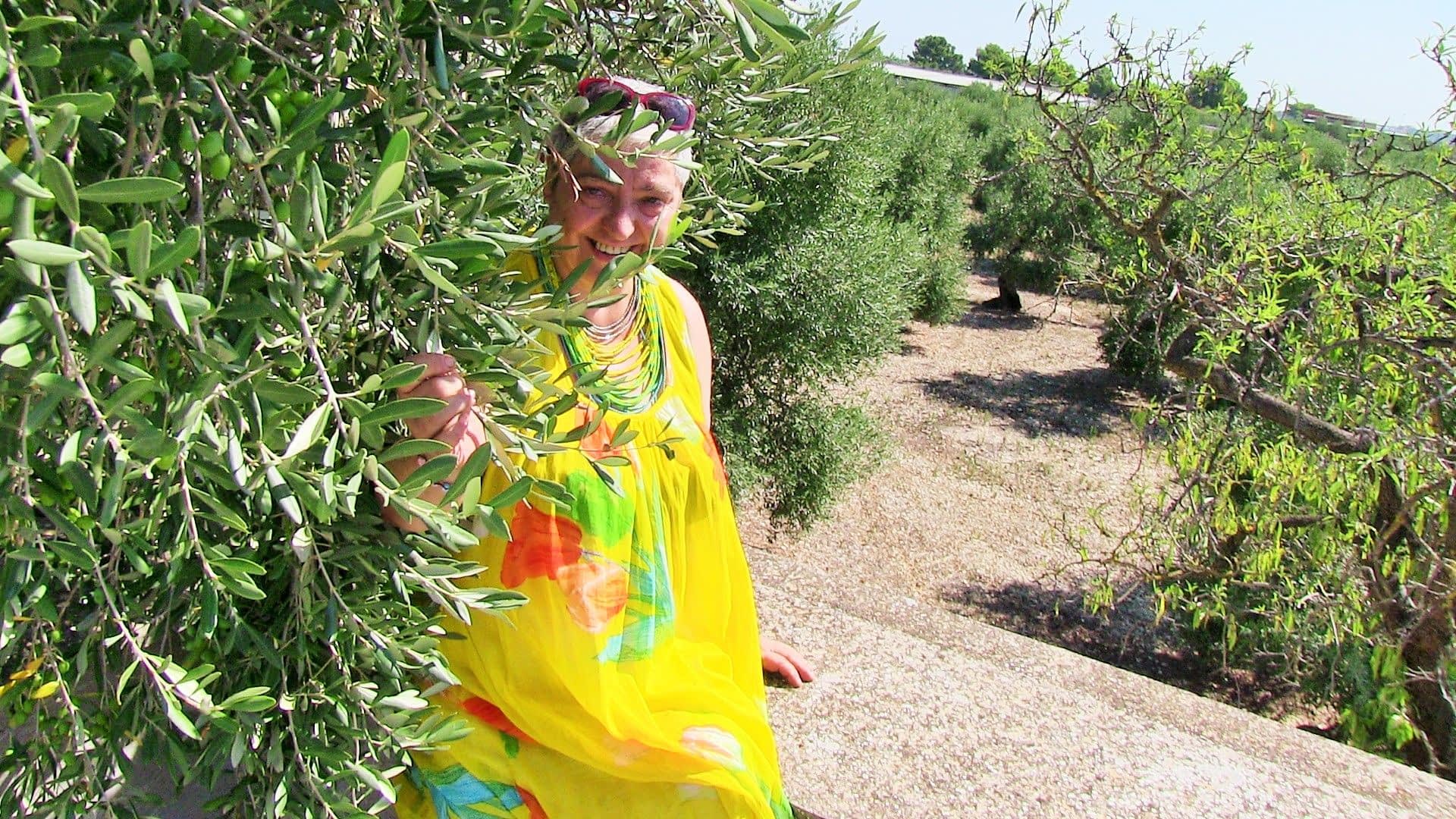
Benedetta Stallone Desantis at Le Due Benedette farm
“Being among the world’s best olive oil producers is an extraordinary satisfaction, especially for a small family company like ours,” said Benedetta Stallone Desantis. “These awards repay our work in the field, but I must say they also helped us increase sales.”
“In particular, at the farmers’ markets, the award stickers that we have put on bottles and tins catch the attention of consumers, who, once they found out that we succeeded in the competition, become enthusiastic,” she added.
From a 2.5‑hectare grove close to the sea in the Pizzicocca district, Stallone Desantis obtains her Coratina-dominated blend.
“This is a very fragrant oil, and I think that this depends on the proximity to the sea of the plot, which affects the characteristics of the soil,” she said.
From another grove in the countryside of Bitonto, made up of Coratina and a small part of autochthonous Cima di Bitonto, she produces Peragineto.
“The latter has a more rounded taste,” she said. “They are similar products made with the same variety, yet they are well distinguishable.”
Last summer’s drought created concern, but September rains saved the harvest and allowed them to collect healthy fruits.
“As climate change is advancing, it is fundamental to carry out sustainable agricultural practices,” Stallone Desantis said.
“Everything we do in the grove aims at preserving the environment with its wildlife,” she concluded. “Indeed, our organic olive groves thrive also thanks to its rich biodiversity.”


